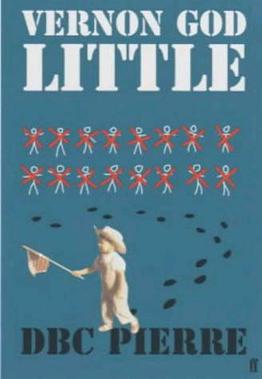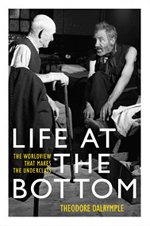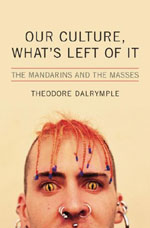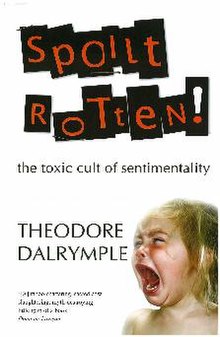
Sylvia Plath was an American poet, novelist, and short story writer. She is credited with advancing the genre of confessional poetry and is best known for The Colossus and Other Poems (1960), Ariel (1965), and The Bell Jar, a semi-autobiographical novel published shortly before her suicide in 1963. The Collected Poems was published in 1981, which included previously unpublished works. For this collection Plath was awarded a Pulitzer Prize in Poetry in 1982, making her the fourth to receive this honor posthumously.

Edward James "Ted" Hughes was an English poet, translator, and children's writer. Critics frequently rank him as one of the best poets of his generation and one of the twentieth century's greatest writers. He was appointed Poet Laureate in 1984 and held the office until his death. In 2008, The Times ranked Hughes fourth on its list of "The 50 greatest British writers since 1945".

Jasper Fforde is an English novelist whose first novel, The Eyre Affair, was published in 2001. He is known mainly for his Thursday Next novels, but has also published two books in the loosely connected Nursery Crime series, two in the Shades of Grey series and four in The Last Dragonslayer series. Fforde's books abound in literary allusions and wordplay, tightly scripted plots and playfulness with the conventional, traditional genres. They usually contain elements of metafiction, parody, and fantasy.

Vernon God Little (2003) is a novel by DBC Pierre. It was his debut novel and won the Man Booker Prize in 2003. It has twice been adapted as a stage play.

Sylvia is a 2003 British biographical drama film directed by Christine Jeffs and starring Gwyneth Paltrow, Daniel Craig, Jared Harris, and Michael Gambon. It tells a story based on the real-life romance between prominent poets Sylvia Plath and Ted Hughes. The film begins with their meeting at Cambridge in 1956 and ends with Sylvia Plath's suicide in 1963.

William Benedict Hamilton-Dalrymple is an India-based Scottish historian and art historian, as well as a curator, broadcaster and critic. He is also one of the co-founders and co-directors of the world's largest writers' festival, the annual Jaipur Literature Festival. He is currently a Visiting Fellow at All Souls College, Oxford.

Anthony Malcolm Daniels, also known by the pen name Theodore Dalrymple, is a conservative English cultural critic, prison physician and psychiatrist. He worked in a number of Sub-Saharan African countries as well as in the East End of London. Before his retirement in 2005, he worked in City Hospital, Birmingham and Winson Green Prison in inner-city Birmingham, England.
David John Taylor is a British critic, novelist and biographer, who was born and raised in Norfolk.
Make Poverty History were organizations in a number of countries, which focused on issues relating to 8th Millennium Development Goal such as aid, trade and justice. They generally formed a coalition of aid and development agencies which worked together to raise awareness of global poverty and achieve policy change by governments. The movement has existed in Australia, Canada, Denmark, Finland, New Zealand, Nigeria, Norway, Romania, South Africa, Ireland, the United Arab Emirates, the United States of America, and the United Kingdom. The various national campaigns were part of the international Global Call to Action Against Poverty campaign.
Sentimentality originally indicated the reliance on feelings as a guide to truth, but in current usage the term commonly connotes a reliance on shallow, uncomplicated emotions at the expense of reason.

Birthday Letters is a 1998 poetry collection by English poet and children's writer Ted Hughes. Released only months before Hughes' death, the collection won multiple prestigious literary awards, including the Whitbread Book of the Year, the Forward Poetry Prize for Best Collection, and the T.S. Eliot Prize for Poetry in 1999. This collection of eighty-eight poems is widely considered to be Hughes's most explicit response to the suicide of his estranged wife Sylvia Plath in 1963, and to their widely discussed, politicized, and "explosive" marriage. Prior to Birthday Letters, Hughes had only explicitly mentioned Plath once before, in a poem titled 'Heptonstall Cemetery' from his 1979 collection Remains of Elmet.

During the early hours of 31 August 1997, Diana, Princess of Wales, died from injuries sustained earlier that night in a fatal car crash in the Pont de l'Alma tunnel in Paris, France. Diana's partner, Dodi Fayed, and the driver of the Mercedes-Benz W140, Henri Paul, were found dead inside the car. Dodi's bodyguard, Trevor Rees-Jones, was seriously injured but was the only survivor of the crash.

Londonistan: How Britain is Creating a Terror State Within is a 2006 best-selling book by the British journalist Melanie Phillips about the spread of Islamism in the United Kingdom over the previous twenty years. The book was published in London by Encounter Books.
Nicholas Farrar Hughes was a British and American fisheries biologist known as an expert in stream salmonid ecology. Hughes was the son of the American poet Sylvia Plath and English poet Ted Hughes, and the younger brother of artist and poet Frieda Hughes. He and his sister were public figures as small children due to the circumstances of their mother's widely publicized death by suicide.
Psychobabble is a derogatory name for therapy speech or writing that uses psychological jargon, buzzwords, and esoteric language to create an impression of truth or plausibility. The term implies that the speaker or writer lacks the experience and understanding necessary for the proper use of psychological terms. Additionally, it may imply that the content of speech deviates markedly from common sense and good judgement.

A Brief History of Crime is the third book by author and journalist Peter Hitchens. Originally published in 2003, it was reissued in 2004 under the new title The Abolition of Liberty. The book was described in 2012 by The American Conservative magazine as "a must-read for anyone on either side of the Atlantic".

The Rage Against God is the fifth book by Peter Hitchens, first published in 2010. The book describes Hitchens's journey from atheism, far-left politics, and bohemianism to Christianity and conservatism, detailing the influences on him that led to his conversion. The book is partly intended as a response to God Is Not Great, a book written by his brother Christopher Hitchens in 2007.

Life at the Bottom: The Worldview That Makes the Underclass is a collection of essays written by British writer, doctor and psychiatrist Theodore Dalrymple and published in book form by Ivan R. Dee in 2001. In 1994, the Manhattan Institute started publishing the contents of these essays in the City Journal magazine. They are about personal responsibility, the mentality of society as a whole and the troubles of the underclass. Dalrymple had problems in finding a British publisher to help him turn his individual essays into a collection, so he eventually turned to American companies for publication.

Our Culture, What's Left of It: The Mandarins and the Masses is a 2005 non-fiction book by British physician and writer Theodore Dalrymple. It is composed of twenty-six separate pieces that cover a wide range of topics from drug legalisation to the influence of Shakespeare. A common theme is criticism of modern society in Great Britain and, in many articles, social attitudes towards literature. The book was published by the Ivan R. Dee group. He generally describes British culture as a "moral swamp" and writes that the people must return to past traditions before it is too late.
A monotrophic diet is a type of diet that involves eating only one food item or one type of food. Monotrophic diets may be followed for food faddism motives, as a form of crash dieting, to initiate an elimination diet or to practice an extreme form of alternative medicine.














